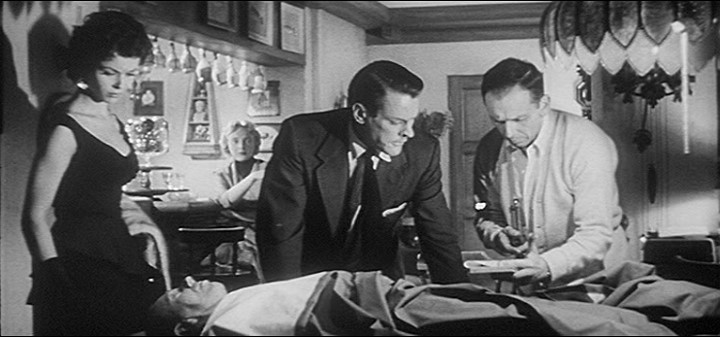Thursday, May 21, 2009
Seminar Reflection 5/21/09
The Day the Earth Stood Still (1951)
When is violence or the threat of violence justified? Does The Day the Earth Stood Still answer this question differently from The Thing?
I believe that fear or the threat of fear is only justified when the enemy seems to have shown that they are planning to use violence or have already demonstrated their own type of violence. There is no point of starting a war against someone who hasn't even attempted to kill anyone or show any kind of violence towards anybody. For example, near the beginning of The Day the Earth Stood Still, after Klaatu starting walking out of his ship, he was going to present a gift for the "Earthlings" but before he could tell anyone what it was he was shot prematurely by a soldier. I think that the soldier shot Klaatu out of paranoia because there was no evidence that Klaatu was planning on hurting anybody and he had previously said that, "We come in peace; we mean you no harm." You would think that after someone saying that, can you really see them as a threat?
In The Thing, I believe that violence was justified only because it was clear that the monster didn't want to "become friends" with the humans. He was attacked by dogs, shot at, lit on fire, and Dr Carrington still expected him to want to communicate. Though the creature showed some interest in what Carrington was explaining to him, he just flung his arm at him anyway, signifying that he was not interested in becoming friends, whatsoever. I believe that after the way the monster acted towards the humans, the violence in this movie was definitely justified.
Tuesday, May 19, 2009
Seminar Reflection 5/19/09
The Thing!
Is your interpretation of the movie closer to something that Biskind would say or Jancovich? In other words, is The Thing more about the need to meet the alien (Soviet) Other with violence, or is it more about social tensions or contradictions in American society?
Well I would have to agree with Biskind because when the alien has made contact with the humans, and the alien has attempted to attack the humans, you know that they aren't looking for friends. For example, when the scientist ran over to 'The Thing' to try to reason with it and act as if it were its friend, the monster just flung his hand and knocked the scientist down without any regret or emotion for him. This shows what kind of creatures that aliens are, and in the near-end of the movie the people have to kill the monster because of the threat it poses upon them and the human race. At the end of movie, the reporter warns people to look at the skies because we are not alone, which raises the paranoia and possible fear for the citizens. I say this because they don't know what to expect from whatever is 'up there'.
















